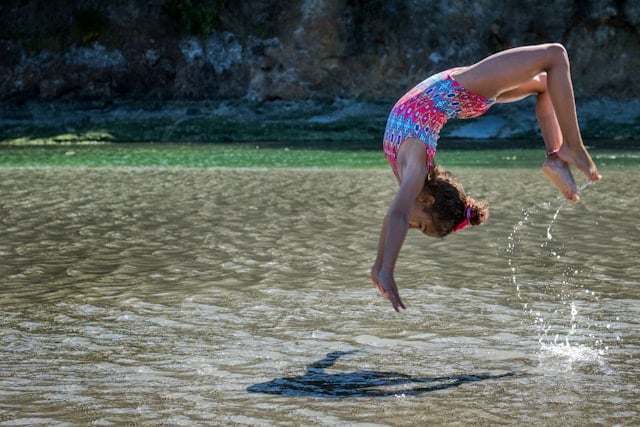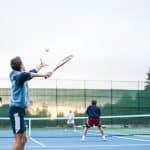Developing a comprehensive and effective mental skills training program for young gymnasts is an intricate task. It involves understanding the mental obstacles gymnasts face, developing strategies to build mental resilience, and creating an environment where athletes can thrive. This article will provide an in-depth look into how to design and implement such a program. We will discuss the importance of mental training in gymnastics, the key elements of a mental skills training program, the role of the coach, and how to evaluate the program’s effectiveness.
The Importance of Mental Training in Gymnastics
As we delve into the realm of gymnastics, we often focus on the physical aspects of the sport such as strength, flexibility, and technical skill. However, the mental component is just as crucial, if not more so. The mental skills developed through training can greatly influence an athlete’s performance. It’s not just about how to execute a perfect flip, it’s also about how to handle the pressure, stay focused, and recover from mistakes.
En parallèle : What’s the Role of Anti-Doping Education in Youth Sports?
Gymnastics is a sport that demands a lot of mental toughness. The athletes are expected to perform complex maneuvers under high pressure, often in front of a large audience. This can lead to anxiety, fear, and self-doubt. A mental skills training program can help gymnasts to overcome these challenges, improve their overall performance, and enjoy the sport more.
Key Elements of a Mental Skills Training Program
Creating a mental skills training program for young gymnasts involves more than just talking about mental toughness. It’s about providing the athletes with specific, concrete strategies and tools they can use to enhance their mental game. These tools should be tailored to the individual needs of the gymnasts, taking into account their strengths, weaknesses, and personal goals.
A découvrir également : What’s the Benefit of Using Hydrotherapy in Rehabilitation for Tennis Players?
A comprehensive mental skills training program will likely include components such as goal-setting, self-talk, imagery, relaxation techniques, focus training, and cognitive restructuring. Each of these elements plays a crucial role in fostering mental resilience and improving performance. For example, goal-setting can help gymnasts to stay motivated and focused; imagery can boost confidence and improve technical skill; while relaxation techniques can aid in managing stress and anxiety.
The Role of the Coach in Mental Skills Training
The coach’s role in developing and implementing a mental skills training program cannot be overstated. As coaches, you have a deep understanding of your athletes – their strengths, weaknesses, fears, and aspirations. This knowledge will be invaluable in shaping the program and ensuring its effectiveness.
Coaches provide guidance, support, and feedback throughout the process. You need to foster a safe and supportive environment that encourages athletes to open up about their mental challenges and fears. This requires being empathetic, patient, and understanding. Remember, the aim is not to eliminate all negative thoughts or emotions, but to help the athletes manage them effectively.
Evaluating the Effectiveness of the Mental Skills Training Program
Evaluation is an essential step in the process of implementing a mental skills training program. Without regular evaluation, it’s impossible to know whether the program is effective and what adjustments might be needed.
Evaluation is not just about measuring performance outcomes, but also about understanding the gymnasts’ experiences and perceptions. Regular feedback sessions with the athletes will provide valuable information about their progress and the effectiveness of the program. It is important to listen to their feedback and adjust the program based on their needs and experiences.
Remember, improving mental skills takes time and practice. It’s not about quick fixes or immediate results. It’s about fostering a mindset of growth and resilience, which will benefit the gymnasts not only in their sport but in all aspects of their lives. Be patient, persistent, and positive, and you will see the benefits of a mental skills training program over time.
In conclusion, implementing a successful mental skills training program for young gymnasts involves understanding the mental challenges they face, providing them with specific strategies and tools, and creating a supportive and understanding environment. Coaches play a crucial role in this process, and regular evaluation is essential to ensure the program’s effectiveness. With time and persistence, such a program can greatly enhance the gymnasts’ mental resilience and performance.
Psychological Skills for Overcoming Mental Blocks
One of the most significant challenges that young gymnasts face is overcoming mental blocks. Mental blocks are psychological barriers that hinder an athlete’s performance. They can manifest in different ways, such as fear of injury, inability to perform a gymnast skill they once mastered, or performance anxiety. Incorporating psychological skills in the mental skills training program is essential to help gymnasts overcome these mental blocks.
Firstly, positive talk or self-talk can be an effective psychological tool. This strategy involves coaching athletes to use positive statements about their abilities and performance. For example, instead of thinking, "I can’t do this," the athlete should be encouraged to think, "I can do this." Consistent positive talk can gradually change the gymnast’s mindset and help them overcome fear and anxiety.
Secondly, a sport psychologist or performance coach can be invaluable in helping gymnasts deal with mental blocks. They can provide techniques to manage anxiety, improve concentration and enhance performance. For instance, they may use cognitive-behavioral techniques to help athletes challenge and change negative thought patterns.
Lastly, visualization or imagery exercises can be powerful tools to overcome mental blocks. Coaches can guide athletes to visualize executing a perfect routine or overcoming challenging situations. This technique can boost the gymnast’s confidence and improve their performance.
Creating a Balance Between Mental and Physical Skills
Gymnastics is not just about physical prowess but also involves a considerable component of mental toughness. Therefore, creating a balance between mental and physical skills is crucial in a mental skills training program.
To start with, coaches should emphasize the importance of mental training as much as physical training. Young gymnasts should understand that mental toughness, just like physical strength or flexibility, can be improved with regular practice and training.
Secondly, ensure that the mental skills training is integrated into the regular training sessions, not treated as an add-on or afterthought. For example, coaches can incorporate elements of goal-setting, visualization, or positive talk into the regular training routine, making them a part of the overall training plan.
Finally, always remember that each gymnast is unique. A one-size-fits-all approach may not work. The mental skills training program should be personalized, taking into consideration each gymnast’s individual strengths, weaknesses, and personal goals.
Conclusion
A comprehensive mental skills training program is instrumental in helping young gymnasts overcome mental blocks, manage stress and anxiety, and enhance their overall performance. The program should incorporate psychological skills, balance mental and physical training, and be personalized to each gymnast. Coaches play an essential role in this process, fostering a supportive environment, guiding the athletes, and providing regular feedback. Although it may take time, the mental skills training program will help gymnasts develop a mindset of growth and resilience, benefiting them both in their sport and in life.






